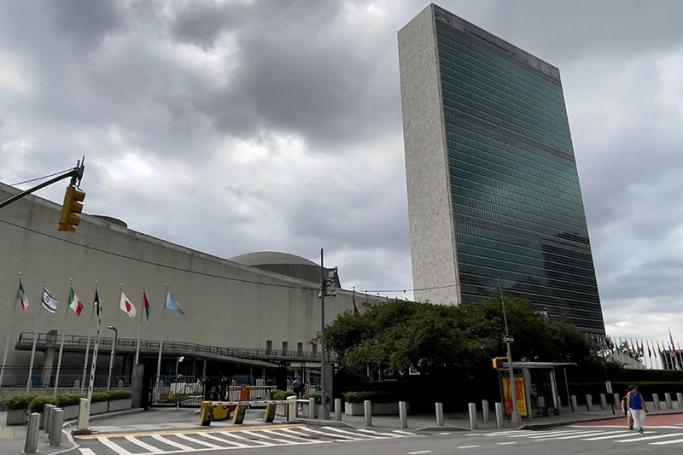Myanmar’s increasingly important role in the Indo-Pacific and ASEAN regions is amplified by the recent agreement between China and the USA to prevent the Myanmar Military rulers to address the UN General Assembly. This is an important inflection point in the Indo-Pacific as the USA and China are polarised when it comes to recognising the Military Junta currently in place in Myanmar.
Myanmar’s growing importance to the geo-political landscape is emphasised with the UN allowing the National League for Democracy’s appointed ambassador to continue to represent Myanmar, but with several restrictions. The UN’s decision is made all that much easier with the USA and China agreement that all but sees both the NLD and the Military representative suspended from any meaningful dialogue.
With the main protagonists, the USA and China, looking for a diplomatic solution that protects their respective positions, Myanmar has yet another opportunity to shape its future. If Myanmar wants to maintain its seat at the UN General Assembly, its leaders need to take advantage of this hiatus to establish common ground and not waste its efforts. The Military leadership needs to be aware of the changing political playing field.
Why the Myanmar Military?
It appears that the Military has sought favour and support from China to gain credibility after their Coup removed the NLD from government. At the time of the Coup, China was in the ascendency in the Indo-Pacific region as it progressed towards its ambition to be the Regional Hegemon. So, it made sense, as China could offer financial and security support in a region where the USA was losing credibility and the EU was trying to balance their economic and trade activities with China. In a sense, it had nothing to lose under such an accommodation by China.
However, recent events and the UN agreement point to a dynamic and changing geo and economic landscape. The citizens and the Military leadership within Myanmar need to be aware of these changes and look to solutions to get the best result for the Country. The Military needs to accept that it needs to adhere to the international rule of order if it wants to lift the country out of poverty.
So, what are these changes that points to China becoming less of a winning horse?
In the first instance, domestic China is facing significant internal dissent as her citizens come to question the increasing assertive, wolf warrior approach currently in play by Chinese leader Xi Jinping. They are increasingly becoming aware of the shift from an authoritarian to a totalitarian political system that brings back memories of the humanitarian failures under Mao. The first steps taken by the EU was to not ratify the EU-China Comprehensive Agreement on Investment.
Adding to the moving political sands, China has a high level of debt, particularly corporate debt, that has the economy at the edge of the precipice. Furthermore, the middle-income trap is starting to hurt civil society, particularly as the income gap has grown and the new middle class do not want to lose their lifestyles. Essentially, what this means is that China is less likely to step in and help at a time when it is spending more on internal security arrangements than on the military.
Another significant factor is the EU moving away from its “trying to please” both the USA and China. Increasingly it is pushing back with regards China’s assertiveness and aggressive stance in their
region. Some of this change has been brought about by the realisation that overall trade between the EU and USA is higher than what they enjoy with China. Whilst France and Germany held onto the manufacturing and physical trade dominance narrative with China, there has been a waking up of EU countries that when taking trade in services, the EU was in fact far more reliant on the USA. This clarification was important as the new world economy will increasingly be services-based driven by technology and digitalisation.
Furthermore, the EU has introduced its own infrastructure plan to compete with China. There has already been deals struck between Brussels, India, and Japan to coordinate transport, energy and digital projects connecting Asia with Europe. In the Myanmar context, the need for Myanmar to have a deep-water port connecting it with India, Africa and the Middle East is no longer hostage to China. In practical terms, Sittwe is now a viable strategic alternative to the China-controlled development in Kyauk Phyu.
There also needs to be an understanding that China, despite claims that they do not interfere with a country’s internal affairs, has been shown to be supporting armed Ethnic groups in armed conflict with the Tatmadaw. Not only does this destabilise the country but is a strategy that runs parallel with China’s recent comments regarding Yangon Port’s importance to leverage the Military to go ahead with the construction of the Kyauk Phyu port in the Rakhine State.
The Military junta has a narrow window in which to reflect on what is in the best interests of Myanmar and its citizens.
Betting on China, and to some extent Russia, is far riskier than betting on the newly-emerging economic axis being formed by the EU, India, Japan, and South Korea. But to engage with this new economic axis, the Myanmar junta will have to comply with the international rule of law and transition to a civilian democracy. The question is whether they have the courage to flex their muscles and proceed along this path to bring Myanmar out of poverty through sustainable economic development.












